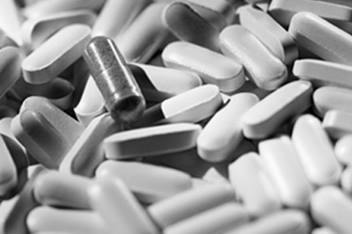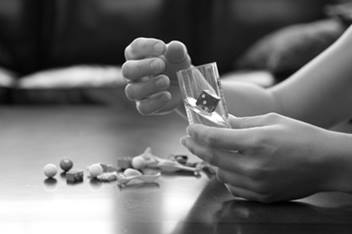Drug-Related Poisoning
Cases of drug-related poisoning have been rising over the last decade in the United States. Every day in the United States, there are over 1,900 visits to an emergency department (ED) for drug-related poisoning, costing Americans more than $3.8 million. The cause of these poisonings has shifted over the past decade. Prescription drug-related poisonings now lead to more deaths and emergency department visits than illegal drugs.
Proper Storage
- Store all medications in a locked cabinet.
- Be aware of how the medication is packaged. Child-resistant packaging will not stop all children from getting to the medicine.
- Keep purses and bags that could contain medications out of the reach of kids at all times.
- Keep medications in their original containers. Never place them in food or drink containers.
Treatment
- If you suspect an overdose of medication, do not make the person vomit and do not use syrup of ipecac or charcoal.
- If the person is unconscious, not breathing well or at all, or having seizures, call 9-1-1 immediately. Begin CPR as appropriate.
- If the person is breathing, contact a Poison Control Center at 1-800-222-1222.
How to Properly Dispose of Your Unused Medications
- Check the disposal instructions on drug labels or medication information.
- Look for a drug take-back program which properly disposes of unused medications.
- To check whether your community has a program, call your local household trash removal service.
- Do not flush prescription drugs down the toilet unless instructed to do so.
- If you do not have any instructions, follow these steps to properly dispose of medications with your household trash:
- Take medications out of their original containers.
- Scratch out all identifying information on prescription labels.
- Mix the medications with an undesirable substance, such as used coffee grounds or kitty litter, to make them unrecognizable.
- Put the medications in a sealable bag, empty can, or other container to prevent them from spilling out.
- If you have questions about how to properly dispose of your medications, talk to your pharmacist.
Teen Medication Misuse, Abuse and Addiction
CIRP researchers have published studies about ADHD medication exposure, opioid exposure, and buprenorphine exposure among youths. All three studies found that, while young children are usually exposed in error - for example, a small child exploring his surroundings got into a pill bottle - more than half of reported exposures in the teen age group were intentional abuse/misuse or suspected suicide attempt. As a result, teens had more serious medical outcomes.
- More about the ADHD medication exposure study
- More about the 2017 opioid exposure study
- More about the 2024 opioid exposure study
- More about the buprenorphine study
- For signs and what to do about medication misuse, abuse, and addiction, click here.
Additional Drug Related Poisoning Resources
- Trends in pediatric prescription-opioid overdoses in U.S. emergency departments from 2008–2020: An epidemiologic study of pediatric opioid overdose ED visits
- PubMed Abstract - April 2024
- Press Release - April 2024
- Prescription Opioid Exposures Among Children and Adolescents in the United States: 2000–2015
- PubMed Abstract - March 2017
- Press Release - March 2017
- Blog Post - March 2017
- ED visits for drug-related poisoning in the United States, 2007
- PubMed Abstract - February 2012
- Press Release - February 2011



